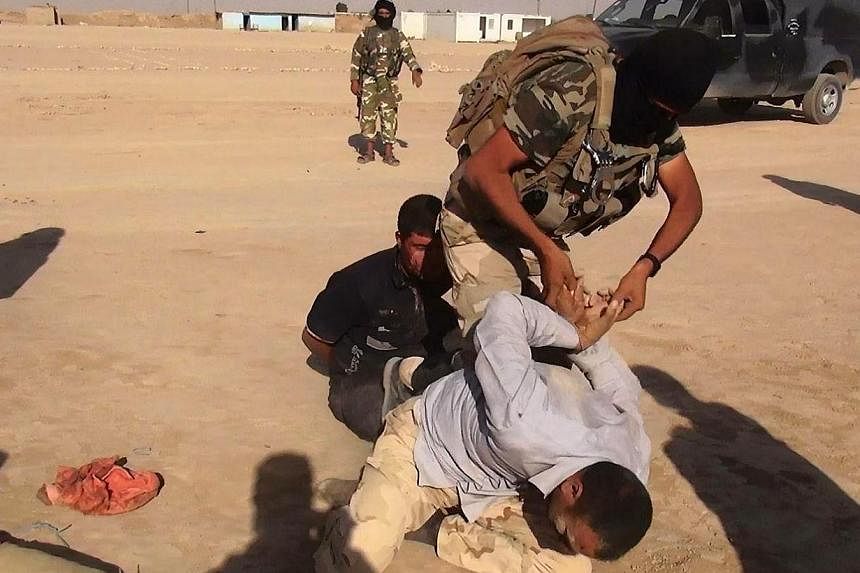LONDON (AFP) - The British government on Thursday banned the ISIL militant group currently rampaging through northern Iraq, adding it to a list of proscribed organisations along with four other groups linked to the Syrian conflict.
Security Minister James Brokenshire told lawmakers that terrorism related to the civil war in Syria "will pose a threat to the UK for the forseeable future", and said banning the groups sent a "strong message".
It is now an offence in Britain to belong or invite support for the Islamic State of Iraq and the Levant (ISIL) and the four other proscribed groups, or even to wear clothing or carry items in public indicating support.
After taking hold in Syria, where it is one of numerous groups fighting President Bashar al-Assad's regime, ISIL is leading an offensive that has seized Iraq's second largest city Mosul and a swathe of territory north of Baghdad.
"Today the UK is proscribing terrorist organisations that support the Assad regime, that are fighting against it, and those with ambitions beyond Syria that have taken advantage of the collapse of security and the rule of law," Brokenshire said.
He added: "Syria is the number one destination for jihadists anywhere in the world. Proscription sends a strong message that terrorist activity is not tolerated wherever it happens."
The proscription motion was passed unopposed in parliament's lower House of Commons, but some lawmakers urged the government to go further than simply outlawing the groups involved.
Prime Minister David Cameron is worried that British nationals joining in the fighting in Iraq and Syria pose a threat to Britain's security.
He insisted "everything that can be done is being done" to stop Britons being radicalised in Iraq and Syria amid fears that 450 people have joined the ranks the extremist Islamist militant group.
Police have made 65 Syria-related arrests since January 2013, Cameron's office has said, while 14 people had their passports seized in the year to March, "a significant number" of them related to Syria.
"The work of the security intelligence and policing services is very much now being focused on to this area and has been for some time," he said after talks with NATO head Anders Fogh Rasmussen.
"We will continue to take all and every step we can to stop people travelling to Syria to prevent them coming back if they have been radicalised and to keep the country safe."
The other four groups banned on Thursday include the Abdallah Azzam Brigades, a Lebanese group loyal to Al-Qaeda, and the far-left Popular Front for the Liberation of Palestine, which supports the Syrian regime.
Another is the little-known Kateebat al-Kawthar brigade, part of the Al-Rashideen Army which was primarily active during the US occupation of Iraq.
The fifth group is Turkey's Revolutionary People's Liberation Party-Front (DHKP-C), a radical Marxist group considered a terrorist group by Ankara, the European Union and the United States.

